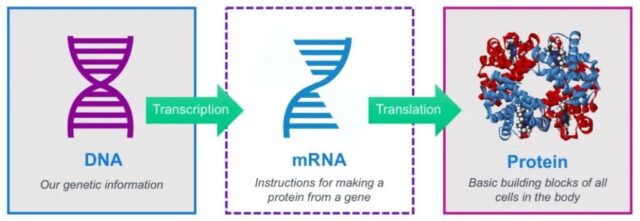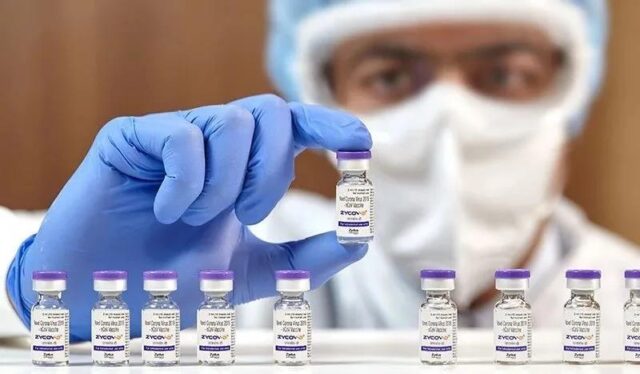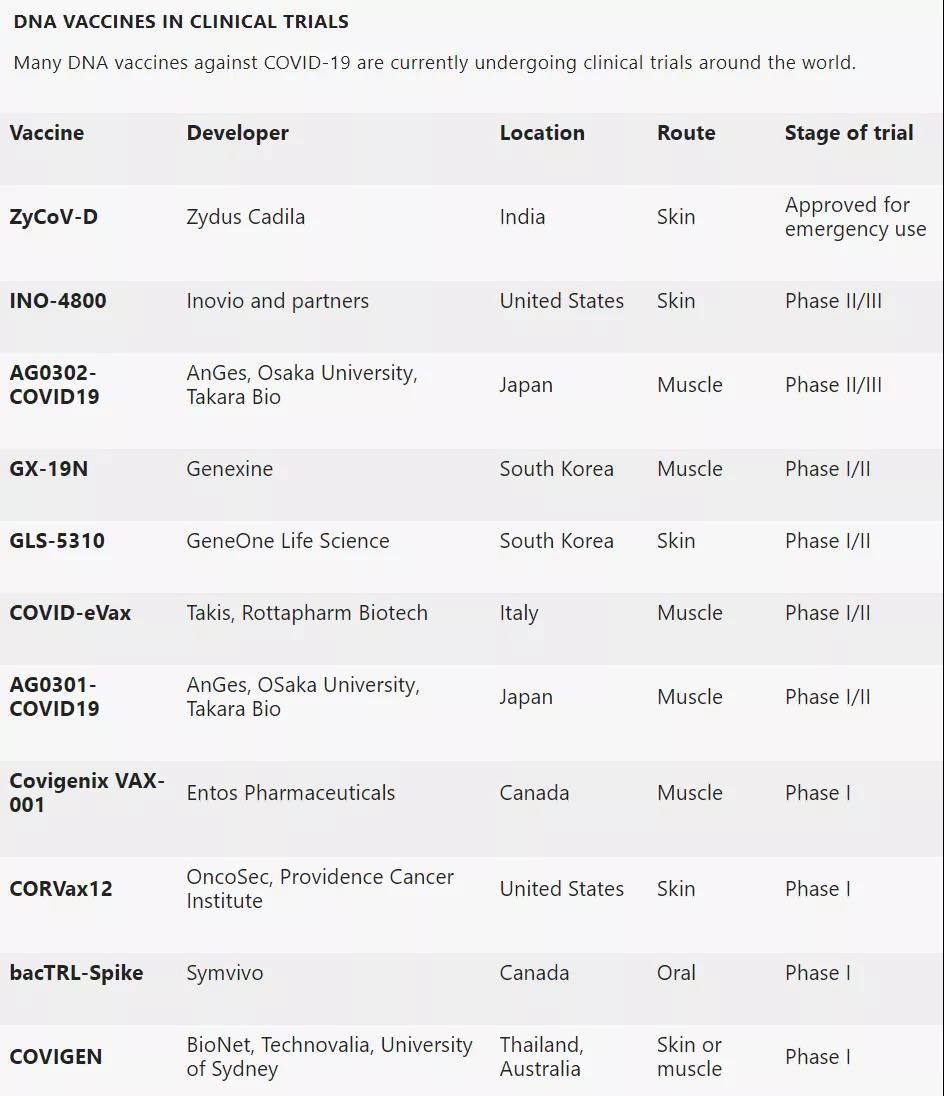Easily produced and stored DNA vaccine is the future of vaccinology?
- Why Botulinum Toxin Reigns as One of the Deadliest Poisons?
- FDA Approves Pfizer’s One-Time Gene Therapy for Hemophilia B: $3.5 Million per Dose
- Aspirin: Study Finds Greater Benefits for These Colorectal Cancer Patients
- Cancer Can Occur Without Genetic Mutations?
- Statins Lower Blood Lipids: How Long is a Course?
- Warning: Smartwatch Blood Sugar Measurement Deemed Dangerous
Easily produced and stored DNA vaccine is the future of vaccinology?
- Red Yeast Rice Scare Grips Japan: Over 114 Hospitalized and 5 Deaths
- Long COVID Brain Fog: Blood-Brain Barrier Damage and Persistent Inflammation
- FDA has mandated a top-level black box warning for all marketed CAR-T therapies
- Can people with high blood pressure eat peanuts?
- What is the difference between dopamine and dobutamine?
- How long can the patient live after heart stent surgery?
Easily produced and stored DNA vaccine is the future of vaccinology?
The world’s first DNA vaccine has been approved and is easier to produce and store. Will it be the future of vaccinology?
In December 2020, the U.S. FDA urgently approved the listing of two mRNA new coronavirus vaccines. This is the world’s first mRNA vaccine to be marketed. More importantly, it only took one year for the two vaccines to go from development to market. Before, a vaccine required at least ten or even decades of development time.
The mRNA vaccine is considered to be the future of vaccinology due to its high efficiency, safety, high production efficiency and low cost. It is also based on the excellent performance of mRNA vaccines that the market values of mRNA vaccine developers Moderna and BioNTech reached US$160 billion and US$80 billion, respectively.
We all know that according to the central law, mRNA is responsible for transmitting the genetic information stored in DNA and directing protein synthesis in cells. mRNA can be used as a vaccine, so can DNA, which is more stable than mRNA, be used as a vaccine?

In fact, there are currently more than 10 DNA COVID-19 vaccines in clinical trials worldwide.
The first DNA vaccine
A few days ago, India urgently authorized and approved a new DNA coronavirus vaccine. This is the world’s first DNA new coronavirus vaccine and the world’s first DNA vaccine. This is a milestone in the history of DNA vaccine research and development, and there may be more DNA vaccines available in the future.
This DNA Covid-19 vaccine is called ZyCoV-D and was developed by Zydus Cadila in India. Unlike other Covid-19 vaccines, this vaccine does not require needle injection, but is administered through a needle-free device that generates a small high pressure. The fluid directly penetrates the surface of the skin, eliminating the pain of needle sticks.

DNA Covid-19 vaccine is being developed globally

Will DNA vaccines be the future?
Since the 1990s, both DNA vaccines and mRNA vaccines have been under development. However, the challenge for DNA vaccines is that it needs to enter the nucleus to be transcribed into mRNA, while mRNA vaccines lack the step of transcription in the nucleus, and only need to enter the cytoplasm to be directly translated.
Therefore, DNA vaccines have been difficult to induce effective immune responses in clinical trials for a long time, which is why DNA vaccines have only been approved as animal vaccines before.
It is understood that the DNA used in the ZyCoV-D vaccine is a circular DNA strand, which encodes the spike protein (S protein) of the new coronavirus and a promoter sequence that initiates gene expression. After the circular DNA enters the nucleus, it will be transcribed into mRNA, and then returned to the cytoplasm and translated into spike protein (S protein), which causes the body’s immune response.
The Indian drug regulatory authority urgently authorized the approval of the ZyCoV-D vaccine for vaccination of people aged 12 years and over. This is based on a large-scale clinical trial of about 28,000 people. The protection rate of the ZyCoV-D vaccine is 67%, although the protection rate is not as good as that Two mRNA vaccines have been approved, but it should be pointed out that the high protection rate of more than 90% of the two mRNA vaccines is against the early version of the new coronavirus, while the 67% protection rate of the ZyCoV-D vaccine is mainly for Delta Variant strain.
As the first DNA vaccine, ZyCoV-D vaccine is of great significance, which shows that we have a new type of vaccine. In addition, compared to mRNA vaccines, DNA vaccines are easier to produce and store. Once their effects are proven, DNA vaccines may become the future of vaccinology.
DNA is easier to synthesize than mRNA, so it is easier to produce and lower in cost, and DNA is more stable, so it is easier to store and transport. mRNA vaccines usually need to be stored at -80°C, while DNA vaccines can be stored at room temperature.
DNA vaccines can be stable for more than 1 year at room temperature, and can be stored at standard refrigeration temperatures (2°C-8°C) for 5 years, while mRNA vaccines The vaccine can only be stored for 5 days under standard refrigeration conditions.
(source:internet, reference only)
Disclaimer of medicaltrend.org
Important Note: The information provided is for informational purposes only and should not be considered as medical advice.



